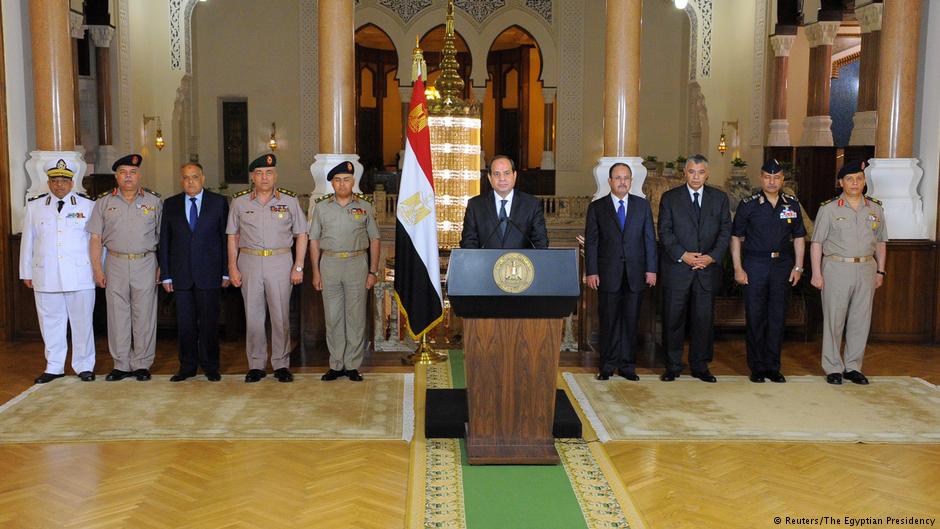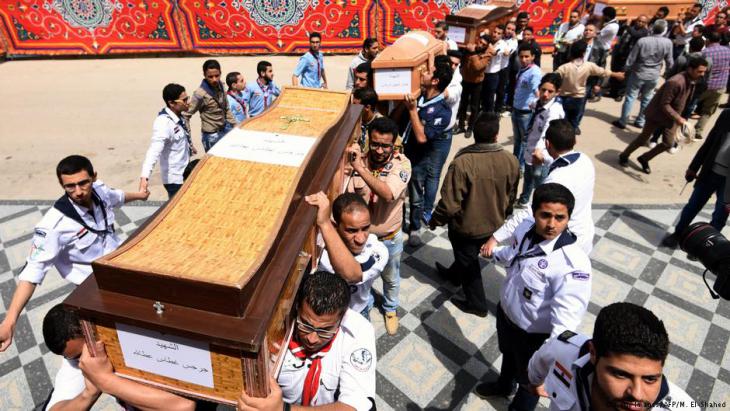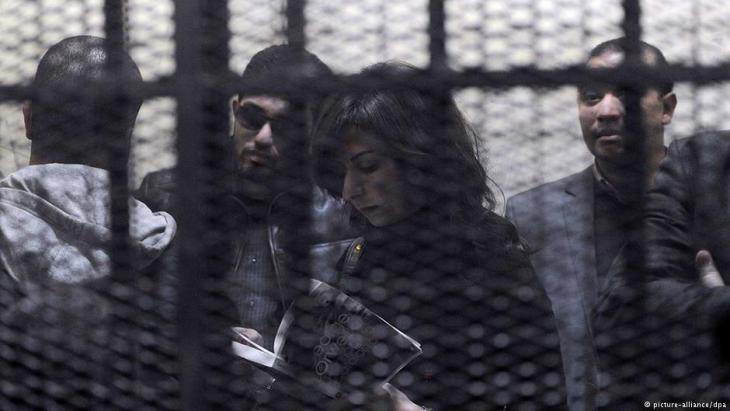Not all it seems

The gruesome murder of 30 Coptic Christians in the Upper Egyptian city of Minya on 26 May was greeted with indignation the world over. It was the fourth major terrorist attack on the Coptic community in Egypt within the space of six months. As with the case of the attack on a church in Cairo that killed 25 people on 11 December 2016 and the two Palm Sunday attacks on churches in Alexandria and the north Egyptian city of Tanta, which killed a total of 47 people, the Egyptian branch of Islamic State (IS) has claimed responsibility for the massacre.
The reaction of the Sisi administration was not long in coming. The very next night, Egyptian fighter jets bombed alleged terrorist camps in neighbouring Libya. The raid was obviously focused on targets in Darna, a city on Libya's northern coast. In a second foray, the jets also bombed positions in the central Libyan city of Hun.
Support for Libyan General Khalifa Haftar
It is obvious that IS structures were not the target of these military attacks. While Darna and Hun are indeed controlled by militias (among them Islamist groups), these militias are not part of IS and have even fought IS in the past.

It is implausible that they are behind the attack on Coptic pilgrims. Thus far, these militias have fought the Libyan general Khalifa Haftar, whose units control vast swathes of eastern Libya and who is a close ally of Egypt.
It therefore seems reasonable to suspect that Cairo is using the terrorist attack in Minya as a pretext for helping its man in Libya gain territory and, in so doing, for ultimately increasing its sphere of influence in its neighbouring country.
However, the Sisi administration is using the fight against terror as an opportunity to push through its agenda not only in Libya but also at home. After the two Palm Sunday church attacks, President Sisi called a state of emergency, despite the fact that Egypt has already been ruled in an extremely repressive manner since the military coup of 2013.
In the weeks that followed, there was another wave of arrests targeting not only militant Islamists but above all young activists and members of opposition, secular and left-wing parties. The allegations made against them were flimsy. What's more, the authorities blocked access to 21 online media, including the independent, high-quality online newspaper Mada Masr. The reason given for the move was their alleged 'support for terrorism'.
Oppressing NGOs in the name of fighting terror
Only two days after the attack on the Coptic pilgrims in Minya, President Sisi passed an incredibly repressive law that puts the work of non-governmental organisations in Egypt under the complete control of the state. Under the pretext of fighting terrorist and extremist activities, non-governmental organisations will in future have to register with the authorities and have both their activities and their financial income approved by them.

Sisi waited six months before signing the law. Among other things, foreign criticism of the draft law was enormous. This latest terrorist attack gave the Sisi administration the opportunity it needed to pass the law without causing too much of a stir.
The upshot of this is that the Egyptian government and its 'anti-terror policy' are preventing effective action from being taken against the terrorist threat to which Egypt really is exposed, as the recent attacks on the Coptic minority and others show.
Instead of providing more protection for the country's Coptic Christians, the security forces are being deployed to oppress peaceful opposition movements and civil society. What is worse: this approach may even abet the further spread of terrorist structures.
Fuelling radicalisation
In Egypt, the closure of all spaces for non-violent political opposition and independent civil society and the ongoing human rights violations at the hands of the security forces are fuelling radicalisation.
In neighbouring Libya, Egypt's one-sided support for General Haftar is hindering all attempts at mediation for peaceful conflict resolution and is likely to further exacerbate the spiral of violence.
In view of these facts, Egypt cannot at present be considered a partner in the international fight against terrorism. Co-operation such as the one planned by the German-Egyptian Security Co-operation Agreement agreed by the German parliament at the end of April is destined to fail in view of the Egyptian administration's blatant exploitation of the fight against terror.
Instead of further increasing the co-operation with Cairo on security matters, European states should instead be pushing Egypt towards political reform and observance of the rule of law.
Stephan Roll
© Qantara.de
Translated from the German by Aingeal Flanagan
